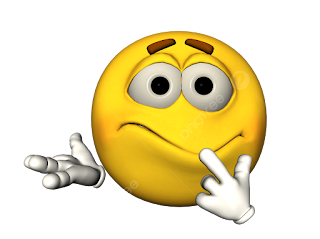Raju Korti
Imagine this: an entire conversation, possibly a friendship, sustained through an endless stream of thumbs-up, heart eyes, laughing tears, and facepalms. This is not some futuristic language experiment but the current reality of communication, especially on social media platforms like WhatsApp. The phenomenon of emojis -- or emoticons if you like -- has almost usurped language from mere words to multi-coloured symbols, sometimes witty, sometimes baffling, and occasionally even profound. But what are we sacrificing -- and gaining -- in this quirky semiotic revolution?
Lest I should be thought of as an impatient, ageing, old-fashioned, man bogged down by generation issues, let me say this: Emoticons, at their core, are symbols -- a throwback to the days of hieroglyphs. I can understand, though not always appreciate, that they don't just complement language; in some cases they replace it entirely. Younger generations have developed an almost mystical grasp over these pixelated glyphs, piecing together sentences and sentiments without typing a single word. It is a swift, shorthand way of expressing everything from joy to exasperation. And who wouldn't appreciate the efficiency of sending a single crying-laughing face instead of typing out, "That's hilarious"!
Indeed, emoticons have introduced an undeniably universal element to the language, creating a bridge across cultures. Think of the globe's most popular emoticons like the "smiley or the anger." No matter where you are from, they deliver a shared sense of meaning -- far more effective than wrestling with translation software or cross-cultural misunderstandings. Looked thus, emoticons have enriched the linguistic landscape, giving people a common tongue that transcends language barriers and even generations.
However, there is a cost to this pictorial convenience. Language is more than just communication. It is a carrier of culture, nuance, and history. When reduced to symbols, the fidelity and the richness of expression and subtlety might be lost. Take sarcasm for instance -- a favourite tool in any wordsmith's toolkit. How does one convey biting sarcasm or layered irony through a mere smiling face? Sure there are emoticons that come closer but are not quire right there.
For the traditionalists (who may feel that emoticons are the linguistic equivalent of graffiti on a library wall), there is an apprehension that we are witnessing the decline of words themselves. With emoticons, people are encouraged to think in bite-sized, colourful fragments rather than in full, articulate sentences. What could this mean for the future of language skills, for reading comprehension, or for the beauty of crafted prose? If emoticons take over as the "universal language" could we face a future where words are relegated to the sidelines, merely supporting acts in a new world of smileys and symbols?
Perhaps, we are being too harsh. Language has always evolved, after all. Just as English absorbed words from Latin, French and German, it is entirely possible that emoticons are well on course of this revolutionary phase. There is an art in choosing the right emoticon that resonates with tone and context, a skill that requires sautéing empathy and cultural awareness. A youngster may create a cocktail of emoticons to represent emotions in ways that words may not fully capture, embodying the very essence of communication in a digital age. In fact, emoticon users might argue they're making language more accessible, malleable, more concise, and above all, more fun.
So, are emoticons the future? Will they replace language, or will they continue as mere accompanying artistes? The jury in me is still out but the prosecution in me hesitates. In a world that is speeding up, emoticons have found a way to meet the pace, even if they leave die-hard grammar enthusiasts (like me) shaking their heads in despair. Perhaps the best approach is to see emoticons as what they are: an accessory, not a replacement. A well placed emoticon can amplify the meaning, while overuse can lead to a grey area of ambiguity. Ask me. I deal with them first thing in the morning when grappling with messages on WhatsApp.
In this tug of war between a liberal and a conservative, I would evaluate emoticons as neither a linguistic hero nor a villain. They are just symbols of the times. And may be the next time we are tempted to send an emoticon without a single word accompanying it, we might pause and wonder: is this an evolution of language or merely its colourful eclipse?





No comments:
Post a Comment